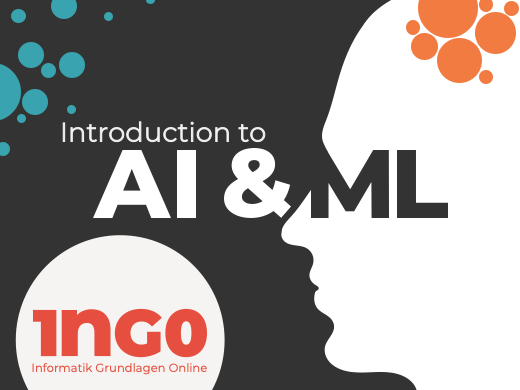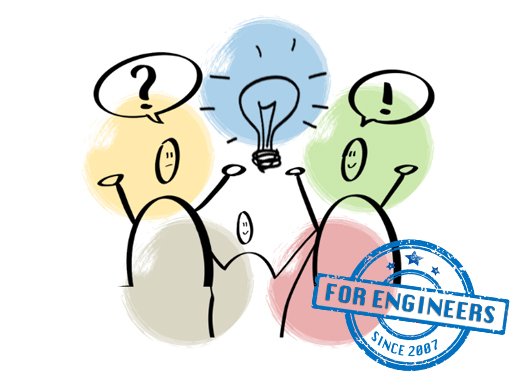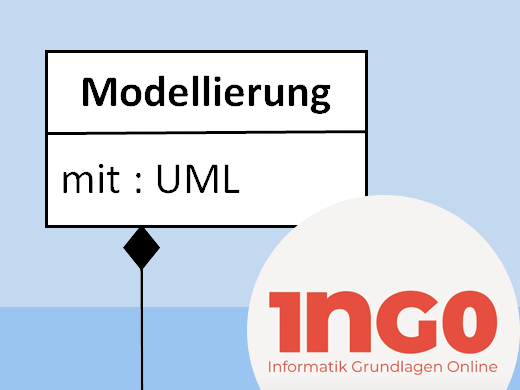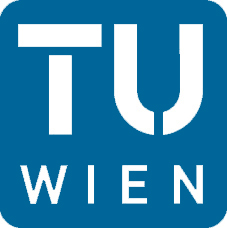
Core Team
David Penz PhD student at TU Wien and JKU Linz. His research focus lies on deep learning architectures for disentanglement & bias mitigation.
Markus Schedl Professor at JKU Linz and head of the research group Multimedia Mining and Search. His research focus lies on applied machine learning, learning to rank, and algorithmic fairness.
Thomas Gärtner Professor at TU Wien and head of the research group Machine Learning. His research focus lies on kernel methods and theoretical foundations in machine learning.
Other Contributors
Monica Vlad Student at JKU Linz. Video animation and voiceover.
Said Khudoyan Student at JKU Linz. Technical design/implementation of exercises and projects.
Oleg Lesota PhD student at JKU Linz. Video animation and design.
You have had enough of all the media hype about artificial intelligence, machine learning, ChatGPT, etc.? You finally want to understand what is behind these buzzwords and demystify the myth surrounding artificial intelligence? You are interested in computer science and possibly studying a relevant subject?
Then you have come to the right place!
Welcome to our MOOC "Introduction to Artificial Intelligence & Machine Learning"!
In this course, we will explore the concepts of artificial intelligence and machine learning, delving a little deeper into the subject matter. We will start with an introduction to the topic and explain what is hidden behind the individual terms artificial intelligence, machine learning, and deep learning, and how they differ. You will learn all the necessary basics of data processing, machine learning, and evaluation. We will also present you a list of "intelligent" algorithms for different problems.
During this course, you will implement your own machine learning projects, starting with data analysis and processing, and ending with the evaluation of your very own machine learning model.
Are you still interested or thinking "sure, why not"? Then start the course and let's go!
The course will be divided into 9 units, which will cover the respective topics:
Unit 1: Introduction to AI & ML, history, and taxonomyUnit 2: Data preparation and processing
Unit 3: Core concepts of Machine Learning
Unit 4: Evaluation methods for different problem settings
Unit 5: Rule-based classification and regression algorithms
Unit 6: Clustering and dimensionality reduction
Unit 7: Kernel methods
Unit 8: Fairness, law, etc. in ML
Unit 9: Outlook on topics not covered
In all lessons, you will be introduced to the individual concepts through animated videos in order to develop an intuitive understanding. For more complex topics, we provide additional material for you to read. You will further strengthen your acquired knowledge in exercises and projects and put them into practice.
After completion of this course, you will be able to describe basic concepts of machine learning (including data preparation, selection of suitable algorithms, evaluation) and apply them to real-world problems.
Furthermore, you will learn professional and methodological skills to
- develop a suitable strategy for dealing with a given problem (selection of algorithms and methods),
- apply the basics and formal concepts of machine learning,
- develop a suitable strategy for processing real data, and
- define an evaluation concept.
In addition to this, you will learn cognitive and practical skills to
- understand existing problems and their underlying concepts,
- analyse data sets and prepare them for correct use,
- elaborate solutions and apply algorithms to real data, and
- correctly evaluate applied methods and interpret results.
For successful completion of this course, it is recommended to have fundamental programming maths skills (e.g., reading and understanding formal proofs, linear algebra, statistics, probability theory).

It is her superpower to
transform failure into learning because she believes that there is no
success or failure but there are answers to questions or results from
experiments. She is eager to share how this can also work for you
bringing your ideas to life - because your ideas first need that fertile
ground in you.
With great dedication she has been teaching her programs at the Vienna University of Technology since 2007.
Collaboration and Co-Creation have become an imperative for
all types of organizations. As an engineer you never work alone. The skills to be able to bring different parties together in
order to jointly produce a mutually valued outcome cannot be learned
theoretically. This course gives participants the opportunity to put
their ideas on the workbench and develop them collaboratively.
This course is the self-learning part of a program for students at the Vienna University of Technology.
It is about getting involved and applying your team skills in a self-organized way, an experience in itself that you can not get from a book.
An idea is very quickly too big to realize on its own. The program teaches you how to build a foundation for your idea that will inspire you and others to take action and make it happen.
Jutta is driven to support great ideas that may not make it to the market because they don´t make it beyond existing in your thoughts. She wants those ideas to be born, by sharing them and working on making them a reality together in a team complementing each others strengths. The goal is to internalize that giving feedback to others and reflecting on one's own way of working is the source of all learning and thus progress.
Not just because life's challenges are too complex to solve alone but also because doing stuff alone is no fun.
The main goal and subject of this Vienna University of Technology program is gaining practical knowledge of the value creation process in a collaborative setting.
Participants will understand how an idea can grow in a team. It's about learning how to tackle the complex task of paving the way for an idea to make its way into the world in a team.
The challenge is to go from a rough idea of the product or service you want to see in this world, and experience
firsthand how it feels to grow and implement it. Yes, that also means to be open to the ideas of others, to learn to put your own ego aside and to grow beyond yourself together with others.
- Meet your creative confidence and individual strengths
- Learning from self-reflection as an integral part of your evolution
PHASE 1 - INSPIRATION & TEAM QUEST
- introduce yourself and find a team
- share your idea and skills
- explain your why to inspire others
PHASE 2 – A 5 STOP JOURNEY
- travel through the 5 stops to connect the dots
- learn to apply the resources to your context
- reflect your insights
PHASE 3 - INTEGRATE, PITCH & REFLECT
- experience how reflection is the source for your learning
- learn how feedback loops are building the foundation of your idea
- understand how to pitch your idea
For actively participating in the course you will receive an automatic certificate which includes your username, the course name as well as the completed lessons. We want to point out that this certificate merely confirms that the user completed the feedback activity and answered at least 75% of the self-assessment questions correctly.
This work is licensed under a {licenselink}
Additional notes
Language: Course materials are in English. Question to your course guide can also be answered in German. Mentoring: individual and group sessions are part of the program at the Vienna University of Technology. You are welcome to request them directly from the course instructor.
Kudos
for your courage, open mind and curiosity to delve into topics that many engineers and technicians want to avoid at any cost. It is incredibly important to me to bring these topics to you. Because ignorance, underestimation and even disgust about business topics lead to great ideas developed in unethical ways and directions not intended by the founders. It does not have to be that way.

is a associate professor at TU Wien, faculty of informatics, at the human-computer interaction group, part of the institute of visual computing and human-centered technology. His research centers around questions of the interplay between design and (software) development, especially the role and place of design in software engineering. also, he’s working in the field of »informatics and society«.
Christopher Frauenberger is a professor for HCI at the division of Human-Computer Interaction at the faculty of Artificial Intelligence and Human Interfaces, University of Salzburg interested in humans and digital technologies. In particular, he uses participatory design approaches to create meaningful, technological futures for diverse people in real world contexts.
Stefan Szeider is a full professor at the Faculty of Informatics at the Vienna University of Technology (TU Wien), Austria, where he chairs the Algorithms and Complexity Group and the Vienna Center for Logic and Algorithms. His research focuses on the development and analysis of efficient algorithms for problems that arise in Artificial Intelligence and Automated Reasoning.
Alexander Egyed is a Full Professor and Chair for Software-Intensive Systems at the Johannes Kepler University, Austria (JKU). He is most recognized for his work on software and systems design – particularly on variability, consistency, and traceability.
Course participants encounter various ways of thinking and models, implying diverse problem-solving approaches. Additionally, selected aspects of computer science history are discussed, reflecting on the role of computer science in society and addressing specific questions from this field.
Upon completing the course, participants will be able to...
...distinguish and name various thinking approaches and problem-solving methods in computer science.
...evaluate the suitability of different thinking approaches and problem-solving methods for various computer science problems and select appropriate ones.
...explain the need for critical thinking and reflection in designing technical systems.
...reflect critically on the content and priorities of computer science.
...formulate and discuss critical questions about the values and practices of the IT industry.
While no specific prior knowledge is required, a degree of self-initiative and the ability to independently and interest-driven knowledge acquisition are necessary.
And while some of the materials and additional literature are in English, understanding German is necessary for the majority of the course.
The course consists of 8 content lessons, with each lesson focusing on a different way of thinking.
Each lesson includes:
- (Introductory) videos and additional materials as input
- (Interactive) exercises for reinforcement
- A final quiz for self-assessment of acquired knowledge and understanding of the individual concepts
Upon course completion, active participants will receive an automated confirmation of participation, including your username, course name, duration, and effort.
Important Note: This is only a confirmation stating that the user has correctly answered at least 75% of the self-assessment questions provided.
This work is licensed under {licenselink}.

This MOOC was funded by the Federal Ministry Republic of Austria Education, Science and Research as part of the "eInformatics@Austria"
project .
Note: This course will be offered for the first time on a trial basis in October 2023, primarily for testing the MOOC format and evaluating the materials. The course will be evaluated and further developed after completion, and a revised version will replace it in March 2024.

The MOOC was created by a team from the Business Informatics Group at the Technische Universität Wien. The team members are:
Christian Huemer is the Dean of Studies and a Professor of Business Informatics at the TU Wien. He has been teaching in the field of modeling for 20 years, and he will be your lecturer throughout this course.
Marion Scholz is a Senior Lecturer at the TU Wien. With her extensive work on the course "Object-Oriented Modeling", she has laid the foundation and contributed to the instructional design of the MOOC.
Miki Zehetner is a PhD student at the TU Wien. As a media engineer, he is primarily responsible for the multimedia implementation of the learning materials.
Sebastian Krähsmaier is a student assistant at the TU Wien and, as a trained media engineer, shares responsibility for the preparation of the instructional videos.
In order to create high-quality, modern software that meets today's requirements, ad hoc approaches in which "you just program away" are outdated and no longer productive. Instead, a clearly structured approach is required, which is defined and supported by the methods of software engineering. The challenges in software engineering are manifold. They reach from the collection of the requirements over the system Design up to maintenance and advancement of the software. In a software development process, moreover, many people are generally involved who have different training and experience. They need a common language that everyone can understand and speak, so that an exchange is possible. At the same time, this language should be as precise as possible and not have the ambiguities of a natural language. Modeling languages have been developed for this purpose. Especially the Unified Modeling Language (short: UML) is considered to be the dominant language in the field of software system modeling.
The Modeling with UML course provides an introduction to modeling with the Unified Modeling Language (UML) for people with programming experience. Specifically, the structure diagram, sequence diagram, state diagram, activity diagram and use case diagram are taught to give a comprehensive overview of the diversity of the language.
This MOOC was developed by the Business Informatics Group of the Vienna University of Technology as part of the eInformatics@Austria project and funded by the Federal Ministry of Education, Science and Research as part of the initiative "Digital and Social Transformation in Higher Education".
The course is divided into 5 logical units that can be completed in any order.
- Lesson 1+2: The structure diagram is used to represent the static structures of a system.
- Lesson 3: The sequence diagram specifies how messages and data are exchanged between objects or interaction partners.
- Lesson 4: The state diagram illustrates the different states an object can be in and how it transitions from one state to another.
- Lesson 5: The activity diagram describes procedural processing aspects, in simpler terms, workflows. It specifies the control and data flow between individual steps in these workflows.
- Lesson 6: The use case diagram describes which users can interact with which functions of the system and how.
Each lesson consists of instructional videos, practice exercises with solutions, a short film demonstrating the application of the respective diagrams through a practical example, and a concluding self-assessment.
After the course, the course participant will be able to:
- Explain the concept of modeling and object-oriented concepts.
- Create object-oriented models based on practical problems and requirement specifications.
- Understand, create, and evaluate analysis and design models of software systems.
- Utilize and apply object-oriented modeling using UML (structure diagram, sequence diagram, state diagram, activity diagram, use case diagram).
For this MOOC, it is advisable to have a basic understanding of object-oriented programming.

{mlang de}
Prof. Gerald Futschek leitet das Institut für Information Systems Engineering der TU Wien und hat dort eine Gruppe, die sich mit Informatikdidaktik beschäftigt. Sein Forschungsinteresse liegt in der Didaktik der Informatik mit Schwerpunkten Computational Thinking und Didaktik des Programmierunterrichts. Er engagiert sich für die Förderung des IT-Nachwuchs insbesondere auch durch maßgebliche Beteiligung an Wettbewerben wie Biber der Informatik, Computer Creative Wettbewerb und Informatikolympiade.
Elisabeth Wetzinger ist Universitätsassistentin am Institut für Information Systems Engineering an der TU Wien. Ihr Forschungsschwerpunkt und Interesse ist in den Bereichen Fachdidaktik Informatik, Gender & Diversity in MINT und innovativer Konzepte und Methoden der Hochschullehre mit speziellem Fokus auf MOOC (massive open online courses). Von 2011 bis 2016 war sie als Projektassistentin am Computer Vision Lab der TU Wien sowie an der CogVis GmbH in den Bereichen Forschung, Lehre, Projektakquise bzw. Projektmanagement, Marketing und Vertrieb, tätig. Im Rahmen dieser Tätigkeiten beschäftigte sie sich mit Gesichtserkennung unter unkontrollierten Bedingungen, Folgenabschätzung im Bereich (personenbezogener) Bilder in sozialen Netzwerken mit Schwerpunkt Jugendliche und der Entwicklung und Implementierung von Maßnahmen zur Bewusstseinsbildung für diese Thematiken in der Gesellschaft. Sie schloss die Mastertudien Informatikmanagement (Mag.rer.soc.oec, 2010) sowie Medieninformatik (Dipl. Ing., 2016) mit ausgezeichnetem Erfolg an der TU Wien ab.
Xi Wang ist Masterstudentin im Fach Visual Computing an der TU Wien und seit 2015 als Tutorin bzw. Studienassistentin am Institut für Information Systems Engineering, im Bereich "Einführung in die Programmierung" sowie dem voruniversitären Programmier-Brückenkurs für Frauen tätig. Ihr Interesse und Hauptfokus ihrer aktuellen Arbeit beinhaltet Themen wie "Frauen in der Informatik", "Hürden in der Programmierung für Erstsemestrigen" und innovative Konzepte und Methoden Hochschullehre, speziell MOOC (massive open online courses).
Lukas Kränkl absolvierte das Bachelorstudium Wirtschaftsinformatik an der TU Wien von 2011 bis 2014. Während seines Masterstudiums „Software Engineering und Internet Computing“ spezialisierte er sich auf die Bereiche eLearning sowie Information Security. Im Zuge seiner Diplomarbeit „Evaluation von e-Learning Techniken zur Abhaltung eines MOOC“ wirkte er bei der Realisierung des Kurses „Programmieren mit Processing“ mit. Im Jahr 2015 gründete er gemeinsam mit einem Partner die Design- und Grafikagentur „Gebrüder Pixel“, bei der er nun hauptberuflich tätig ist.
{/mlang de}
{mlang de}
Der Einstieg in die Welt der Programmierung kann einfach, spielerisch und überaus kreativ sein! Vor allem kann er Spaß machen – zum Beispiel mit grafischen Kunstwerken, Animationen, Max auf der Suche nach der ältesten Person oder dem Computerspiel Pacman!
Programmieren mit Processing 1 ist ein kostenloser und offener Kurs im MOOC (Massive Open Online Course) Format für Schülerinnen und Schüler ab der 9. Schulstufe sowie Lehrende, Studierende und alle, die gerne die Kunst des Programmierens lernen wollen. Ausgehend von anschaulichen Problemstellungen aus dem Alltag werden grundlegende Programmierkonzepte und deren Umsetzung wissenschaftlich fundiert vermittelt und durch die Teilnehmenden aktiv erarbeitet. Dazu wird die JAVA-ähnliche Programmiersprache Processing verwendet, mit welcher Grafiken, Animationen und andere audiovisuelle Inhalte einfach erstellt werden können.
{/mlang de}
{mlang de}
Die Kursteilnehmenden sind in der Lage ihre eigenen kreativen Ideen mithilfe von Processing und unter Anwendung grundlegender Programmierkonzepte umzusetzen und typische einfache Problemstellungen durch Programmierung zu lösen. Dazu zählen unter anderem folgende Ziele:
Ich kann…
- ein eigenes Programm in der Processing Entwicklungsumgebung programmieren, ausführen und speichern.
- Variablen und Datentypen korrekt einsetzen, verknüpfen und ausgeben.
- einfache Grafiken und Animationen erstellen.
- das Programmverhalten mit Bedingungen, Schleifen und durch Benutzerinteraktion steuern.
- Programme verändern und strukturiert auf Fehler bzw. unerwünschtes Programmverhalten untersuchen.
- einfache Problemstellungen mit Hilfe von Processing lösen.
{/mlang de}
{mlang de}
Mathematik: Stoff der 5. AHS (lineare Funktionen)
Ansonsten sind keine besonderen Vorkenntnisse notwendig, da es sich um einen Kurs für Anfängerinnen und Anfänger handelt.
{/mlang de}
{mlang de}
Für die aktive Teilnahme am Kurs erfolgt bei Abschluss die Ausstellung einer automatisierten Teilnahmebestätigung, welche Ihren Benutzernamen, den Kursnamen, die Kursdauer und den Aufwand beinhaltet. Es wird darauf hingewiesen, dass es sich nur um eine Bestätigung handelt, die aussagt, dass die Benutzerin oder der Benutzer zumindest 75% der gestellten Selbstüberprüfungsfragen richtig beantwortet hat.
{/mlang de}
{mlang de}
Dieses Werk ist lizenziert unter einer {licenselink}
{/mlang de}
{mlang de}
Ein MOOC von

in Kooperation mit

{/mlang de}
{mlang de}Verwendung der MINT-MOOCs{/mlang de}{mlang en}Usage of MINT-MOOCs{/mlang en}
{mlang de}
Wie kann ich die MINT-MOOCs in meinem Unterricht verwenden? from Martin Ebner
{/mlang de}

{mlang de}
Prof. Gerald Futschek leitet das
Institut für Information Systems Engineering der TU Wien und hat dort
eine Gruppe, die sich mit Informatikdidaktik beschäftigt. Sein
Forschungsinteresse liegt in der Didaktik der Informatik mit
Schwerpunkten Computational Thinking und Didaktik des
Programmierunterrichts. Er engagiert sich für die Förderung des
IT-Nachwuchs insbesondere auch durch maßgebliche Beteiligung an
Wettbewerben wie Biber der Informatik, Computer Creative Wettbewerb und
Informatikolympiade.
Elisabeth Wetzinger ist Universitätsassistentin am Institut für Information Systems Engineering an der TU Wien. Ihr Forschungsschwerpunkt und Interesse ist in den Bereichen Fachdidaktik Informatik, Gender & Diversity in MINT und innovativer Konzepte und Methoden der Hochschullehre mit speziellem Fokus auf MOOC (massive open online courses). Von 2011 bis 2016 war sie als Projektassistentin am Computer Vision Lab der TU Wien sowie an der CogVis GmbH in den Bereichen Forschung, Lehre, Projektakquise bzw. Projektmanagement, Marketing und Vertrieb, tätig. Im Rahmen dieser Tätigkeiten beschäftigte sie sich mit Gesichtserkennung unter unkontrollierten Bedingungen, Folgenabschätzung im Bereich (personenbezogener) Bilder in sozialen Netzwerken mit Schwerpunkt Jugendliche und der Entwicklung und Implementierung von Maßnahmen zur Bewusstseinsbildung für diese Thematiken in der Gesellschaft. Sie schloss die Mastertudien Informatikmanagement (Mag.rer.soc.oec, 2010) sowie Medieninformatik (Dipl. Ing., 2016) mit ausgezeichnetem Erfolg an der TU Wien ab.
Xi Wang ist Masterstudentin im Fach Visual Computing an der TU Wien und seit 2015 als Tutorin bzw. Studienassistentin am Institut für Information Systems Engineering, im Bereich "Einführung in die Programmierung" sowie dem voruniversitären Programmier-Brückenkurs für Frauen tätig. Ihr Interesse und Hauptfokus ihrer aktuellen Arbeit beinhaltet Themen wie "Frauen in der Informatik", "Hürden in der Programmierung für Erstsemestrigen" und innovative Konzepte und Methoden Hochschullehre, speziell MOOC (massive open online courses).
Lukas Kränkl absolvierte das Bachelorstudium Wirtschaftsinformatik an der TU Wien von 2011 bis 2014. Während seines Masterstudiums „Software Engineering und Internet Computing“ spezialisierte er sich auf die Bereiche eLearning sowie Information Security. Im Zuge seiner Diplomarbeit „Evaluation von e-Learning Techniken zur Abhaltung eines MOOC“ wirkte er bei der Realisierung des Kurses „Programmieren mit Processing“ mit. Im Jahr 2015 gründete er gemeinsam mit einem Partner die Design- und Grafikagentur „Gebrüder Pixel“, bei der er nun hauptberuflich tätig ist.
{/mlang de}
{mlang de}
Der Einstieg in die Welt der Programmierung kann einfach, spielerisch und überaus kreativ sein! Vor allem kann er Spaß machen – zum Beispiel mit grafischen Kunstwerken, Animationen, Max auf der Suche nach der ältesten Person oder dem Computerspiel Pacman!
Programmieren mit Processing 2 baut auf Programmieren mit Processing 1 auf und ist ein kostenloser und offener Kurs im MOOC (Massive Open Online Course) Format für Schülerinnen und Schüler ab der 9. Schulstufe sowie Lehrende, Studierende und alle, die gerne die Kunst des Programmierens vertiefen wollen. Ausgehend von anschaulichen Problemstellungen aus dem Alltag werden weitere grundlegende Programmierkonzepte und deren Umsetzung wissenschaftlich fundiert vermittelt und durch die Teilnehmenden aktiv erarbeitet. Dazu wird die JAVA-ähnliche Programmiersprache Processing verwendet, mit welcher Grafiken, Animationen und andere audiovisuelle Inhalte einfach erstellt werden können.
{/mlang de}
{mlang de}
Die Kursteilnehmenden sind in der Lage, ihre eigenen kreativen Ideen mit Hilfe von Processing und unter Anwendung grundlegender Programmierkonzepte umzusetzen und typische einfache Problemstellungen durch Programmierung zu lösen. Dazu zählen unter anderem folgende Ziele:
Ich kann…
- Programme in der Processing Entwicklungsumgebung programmieren, ausführen und speichern.
- Datenreihen (Arrays) korrekt einsetzen, verwenden und ausgeben.
- Programme mittels Funktionen strukturieren und Code-Teile dadurch mehrfach - und mit Hilfe von Parametern - in verschiedenen Varianten verwenden
- die Lösung einfacher Problemstellungen mit Rekursionen nachvollziehen und selbst umsetzen.
- ein einfaches spielbares Pacman Computerspiel selbst programmieren bzw. auf Basis von Muster-Code erweitern.
{/mlang de}
{mlang de}
Mathematik: Stoff der 5. AHS (lineare Funktionen)
Ansonsten sind keine besonderen Vorkenntnisse notwendig, da es sich um einen Kurs für Anfängerinnen und Anfänger handelt.
{/mlang de}
{mlang en}
For actively participating in the course you will receive an automatic confirmation of participation (certificate) which includes your username, the course title, course duration as well as the hours required to complete the course. We want to point out that this certificate merely confirms that the user answered at least 75% of the self-assessment questions correctly.
{/mlang en}
{mlang de}
Für die aktive Teilnahme am Kurs erfolgt bei Abschluss die Ausstellung einer automatisierten Teilnahmebestätigung, welche Ihren Benutzernamen, den Kursnamen, die Kursdauer und den Aufwand beinhalten. Es wird darauf hingewiesen, dass es sich nur um eine Bestätigung handelt, die aussagt, dass die Benutzerin oder der Benutzer zumindest 75% der gestellten Selbstüberprüfungsfragen richtig beantwortet hat.
{/mlang de}
{mlang en}
This work is licensed under a {licenselink}
{/mlang en}
{mlang de}
Dieses Werk ist lizenziert unter einer {licenselink}
{/mlang de}

It is her superpower to transform failure into learning because she believes that there is no success or failure but answers to questions or results from experiments. She is eager to share how this can also work for you bringing your ideas to life - because your ideas first need that fertile ground within you.
With great dedication she has been teaching her programs at the Vienna University of Technology since 2007.
Because Jutta loves to co-create and grow ideas, she has been a member of uncountable teams in different types of initiatives like Hackathons or design sprints and organizations attempting to create something new. In her educational programs she worked with several thousands of young students from interdisciplinary backgrounds growing their ideas in a team format.
In this course she is sharing the roadmap that is used as a basic foundation in her programs to lead participants through the complexity of collaboration and co-creation, building ideas into products and services.
Since her course at the Vienna University of Technology was called the CoCo Course by the students, this course is now called the CoCo Roadmap.
Following the videos, you can answer questions that are intended to be used for self reflection and are especially valuable for those who are thinking about turning one of their ideas into reality.
The roadmap allows participants to develop a more realistic assessment of the challenges they will face in developing ideas as a team.
In addition, there are hints and tips from the very personal experience of the course leader that help idea owners to identify stumbling blocks and pitfalls on their future path.
This work is licensed under a {licenselink}